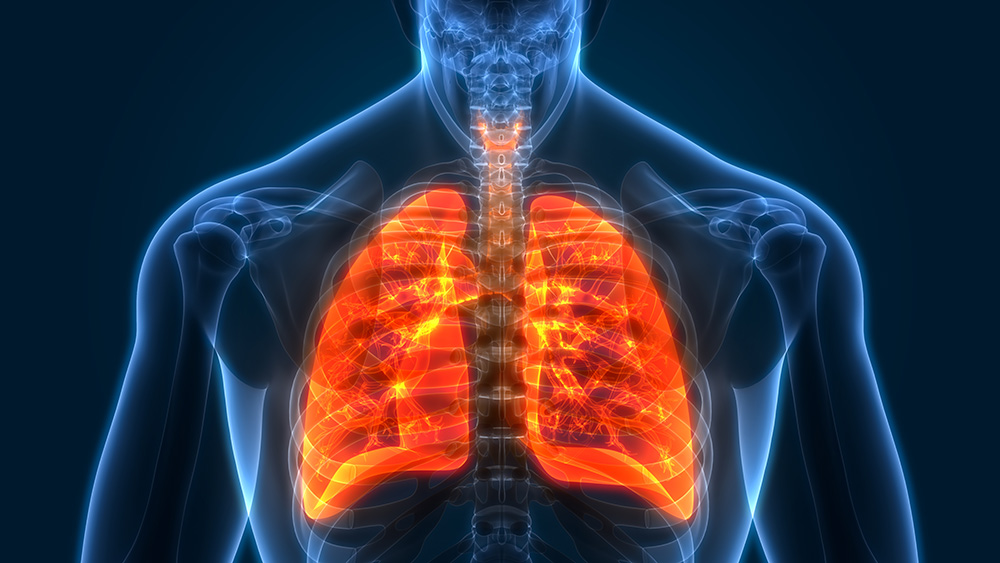
What is lung cancer screening? Here’s what experts want you to know.
Lung cancer is the leading cause of cancer death in America. Graeme Rosenberg, MD, a thoracic surgeon, and Nadia Leach, PA-C, with USC Surgery and the USC Norris Comprehensive Cancer Center, part of Keck Medicine of USC, explain how to get screened for lung cancer and how to detect lung cancer early.
How do doctors test for lung cancer?
Lung cancer screening is an important tool for catching concerning findings and possibly detecting lung cancer at an earlier stage. Our ability to pursue a cure is most effective in the early stages of lung cancer. The sooner you are diagnosed, the more effectively lung cancer experts can treat the disease. Without screening, early development of lung cancer can go undetected, especially because smaller lung masses typically do not cause symptoms.
Lung cancer screening is done with a low-dose CT scan of your lungs. This uses a lower radiation dose than a typical CT scan and is not invasive.
Who should be screened for lung cancer?
Current guidelines from the U.S. Preventive Services Task Force recommend a yearly CT scan for individuals between 50-80 years old who have smoked an average of one pack per day for 20 years, or the equivalent. However, if you haven’t smoked in the past 15 years, you are not recommended for screening anymore.
When to worry about lung nodules
If a lung nodule is detected, the next steps depend on the size and appearance of the nodule. Not every lung nodule is cancerous.
Your doctor may send you to get a high-resolution CT scan. Very small nodules are often followed with a shorter-interval, follow-up CT scan. If CT scan results are concerning, you will be sent for further testing that likely includes a biopsy.
What to do when diagnosed with lung cancer
If you are diagnosed with lung cancer, you will need to undergo a series of steps to determine what the appropriate treatment is for you based on your cancer stage and type. This typically includes a PET scan to see if the disease has spread to the lymph nodes or beyond the lungs. Sometimes, we also need to obtain a biopsy of nearby lymph nodes, as well as a brain MRI. A biopsy of your tumor may be sent for genetic profiling so that we can further determine the best treatment for your specific cancer type. While waiting for all this testing to be completed is oftentimes frustrating and anxiety-producing, know that it is important for you to get the most effective treatment.
What if a lung nodule is detected by chance?
Sometimes, a lung nodule is detected while undergoing a workup for a different health concern. This type of nodule is referred to as an incidental pulmonary nodule, and it is very common. When diagnosing this type of nodule, doctors first need to ascertain whether it could be infectious, benign, metastatic cancer or primary lung cancer.
All incidental pulmonary nodules should be further evaluated by an expert in thoracic surgery or pulmonary disease. We will closely review the size and characteristics of the nodules to determine next steps. We will also gain a thorough understanding of your medical history in order to determine whether to recommend follow-up imaging or a biopsy.
If you or a family member is found to have an incidental lung nodule, ask your primary medical care provider to refer you to a specialist for further guidance.
How is lung cancer treated?
Sometimes, lung cancer treatment will involve surgery alone. However, in many cases, a combination of therapies may be required. This is when treatment at a facility where numerous medical specialists collaborate in a multidisciplinary setting is especially helpful. At Keck Medicine, our oncologists, thoracic surgeons, radiation oncologists and interventional pulmonologists work together regularly and can efficiently recommend and implement the most appropriate treatment plan for each person.
Surgery, radiation, chemotherapy and immunotherapy are all used to treat lung cancer. Your cancer stage and overall health status help determine which treatment or combination of treatments is right for you.
What types of smoke exposure can cause lung cancer?
The safest environment is one that doesn’t expose you to smoke at all. There is no form or amount of smoke exposure that is safer than no exposure.
That aside, chronic tobacco smoke leads to the highest risk of developing lung cancer, which is why we recommend lung cancer screening. Secondhand tobacco smoke exposure has been shown to increase the risk of lung cancer, but not to the extent as cigarette smoking.
Few high-quality studies have analyzed the risks of other forms of smoke exposure, such as from cannabis, wildfire or environmental/industrial smoke. However, there is some evidence that chronic/heavy cannabis smoking can increase the risk of lung cancer. If cannabis use is important to your lifestyle, consider alternative options such as edible preparations that will spare your lungs.
There is also growing concern that vaping may pose a risk of lung cancer due to chronic lung inflammation and unknown chemical components in unregulated e-liquids. We recommend that you treat your lungs as gently as possible to decrease your overall risk of chronic lung disease and lung cancer.
Topics
